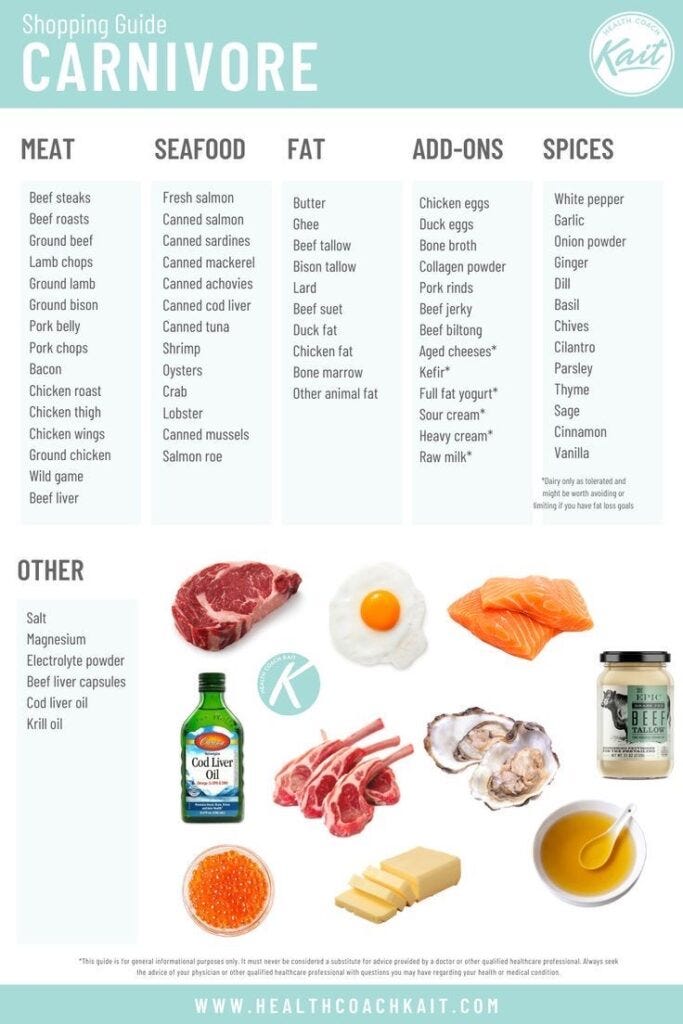The carnivore diet requires careful planning and execution, especially for females due to unique physiological needs. Follow these five steps:
Step 1: Preparation Phase (Before Starting)
Consult a healthcare provider to assess nutritional status, hormonal balance, and underlying health conditions. Women with a history of amenorrhea, bone density issues, or thyroid dysfunction need specialized guidance. Gradually eliminate non-carnivore foods 1-2 weeks prior (sugars, grains, then plant oils) to ease transition.
Step 2: Strategic Implementation
Begin with fatty meats, prioritizing nutrient density:

- Base foods: Beef, lamb, pork, organ meats (liver daily if possible), eggs, fish
- Fat ratio: Aim for 70-80% calories from fat (e.g., ribeye, bacon)
- Salt intake: Increase sodium (5-7g/day), potassium, and magnesium to offset initial electrolyte loss
Hydration: Drink 3+ liters of water daily; bone broth supports mineral intake.
Step 3: Monitor & Adjust for Female Physiology
Track changes closely for 30 days:
- Energy/sleep: Adjust fat intake if experiencing fatigue
- Cycle symptoms: Note menstrual changes; temporarily increase fish intake if inflammation occurs
- Hormonal signs: Report new/acne or hair loss to your doctor
Avoid dairy initially if suspecting sensitivity; reintroduce later.

Step 4: Consistency & Adaptation
Maintain strict adherence for 60-90 days. The body requires 8+ weeks for metabolic adaptation to ketosis. Resist cheats – even small carb intake disrupts fat-adaptation. If weight loss stalls, recalculate macros as metabolic needs change.
Step 5: Post-Diet Evaluation & Next Steps
After 90 days, assess results via blood tests (iron, Vitamin D, hormones). Decide:
- Continue strictly: If resolving autoimmune issues
- Strategic reintroduction: Add single plant foods weekly (e.g., avocado, berries), monitor for reactions
- Modified carnivore: Consider adding raw dairy or honey if sustained energy wanes
Critical Safety Notes: Pregnant/nursing women should avoid this diet due to folate/fiber needs. Women with gallbladder issues require medical supervision. Always supplement Vitamin D3/K2 and monitor kidney function annually.












